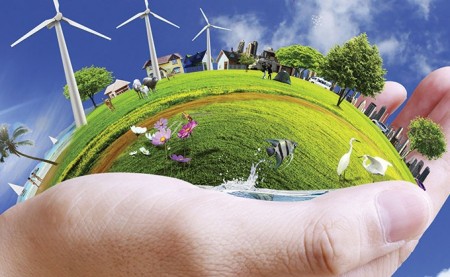How Does Architecture Respond To The Needs Of A Low-carbon Future?

Gas installers play a crucial role in shaping a low carbon future. The goal of reducing carbon emissions has become a worldwide initiative, and gas installers are the key players in ensuring that environmental goals are met.
Here are some reasons why gas installers are fundamental in the low carbon future:
1. Conserving Energy
Gas installers can help in preserving energy through the installation of energy-efficient appliances and technologies. Replacing old, inefficient heating systems with a new, modern condensing boiler, for example, can save up to 30% in energy bills and lower carbon footprints.
By using energy-efficient appliances, the amount of energy needed to heat or cool a house is less. Gas installers can help homeowners plan their system and advise them on the most energy-efficient appliances and technologies for their house.
2. Reducing Carbon Footprints
One of the most significant benefits of hiring gas installers is the opportunity to reduce carbon footprints. Because natural gas is one of the cleanest burning fossil fuel, it produces fewer carbon emissions than other fuels like coal or oil.
Gas installers can advise homeowners on the most efficient and environmentally friendly gas heating systems. They can also advise on the best practices to reduce energy consumption, which can significantly lower carbon emissions.
3. Promoting Renewable Energy Sources
Another role that gas installers play in promoting a low carbon future is by recommending and installing renewable energy sources like biomass boilers, ground-source and air-source heat pumps.
These technologies use natural resources like wood, solar energy, or the warmth from the ground and air to produce heat, and they are regarded as low carbon energy sources.
4. Ensuring Safety and Compliance with Regulations
Gas installers are responsible for ensuring that gas systems are safe, efficient, and comply with regulations. This is important because, in addition to reducing carbon footprints, gas systems must be safe and secure for homeowners.
Gas installers undergo comprehensive training to ensure that they have the necessary skills and knowledge to install and maintain gas systems properly. They also ensure that any work they carry out meets the relevant safety and environmental standards.
5. Providing Maintenance and Servicing
Gas installers also offer maintenance and servicing of gas systems to keep them running at their best, which can reduce energy bills and lower carbon footprints. Regular checks and servicing can ensure that systems are running efficiently and safely and limit the need for expensive repairs in the future.
6. Educating Homeowners on Energy Efficiency
Gas installers can also educate homeowners on the importance of energy efficiency and how to improve their carbon footprints. They can provide homeowners with tips on how to reduce energy bills, like using thermostats wisely and reducing water usage.
Gas installers can also advise homeowners on the best interventions to make in their homes, such as loft and cavity wall insulation.
7. Working Closely with Other Professionals
Gas installers work closely with architects, builders, and other professionals to ensure the seamless installation of gas systems and promote energy efficiency in homes and buildings. This collaboration ensures that new homes and buildings are energy-efficient and meet environmental standards.
8. Reducing Costs for Homeowners and Businesses
By using efficient gas systems, homeowners and businesses can save money on energy bills. Moreover, gas installers can recommend and install systems that are affordable while still being energy-efficient and environmentally friendly.
FAQs
What is a low carbon future, and why is it important?
A low carbon future refers to a future that has lower carbon emissions and relies less on high carbon energy sources like oil, coal, and natural gas. It is essential to reduce carbon emissions to mitigate the effects of climate change and preserve our planet's natural resources.
What are the benefits of using a gas heating system?
Gas heating systems produce fewer carbon emissions than other heating systems like oil or coal. They are also efficient and affordable, making them ideal for homeowners who want to reduce their carbon footprint and save money on energy bills.
Can gas installers recommend renewable energy sources?
Yes, gas installers can recommend and install renewable energy sources like biomass boilers, ground-source and air-source heat pumps. These technologies use natural resources to produce heat and are regarded as low carbon energy sources.
Why is it important for gas systems to be safe and compliant with regulations?
Gas systems must be safe and secure for homeowners, and any installations must comply with relevant safety and environmental standards. This ensures that gas systems are safe, efficient, and reliable for homeowners, reducing the risk of incidents or accidents.
Can gas installers provide maintenance and servicing of gas systems?
Yes, gas installers offer maintenance and servicing of gas systems to keep them running at their best. Regular checks and servicing can ensure that systems are running efficiently and safely, reducing energy bills and limiting the need for future repairs.
How can gas installers help homeowners reduce their energy bills?
Gas installers can advise homeowners on the best interventions to make in their homes, such as loft and cavity wall insulation. They can also provide tips on reducing energy bills, such as using thermostats wisely and reducing water usage.
In conclusion, gas installers play a crucial role in shaping a low carbon future. They promote the use of efficient and environmentally friendly gas systems, educate homeowners on energy efficiency, and work closely with other professionals to ensure energy-efficient buildings.




Post a Comment for "How Does Architecture Respond To The Needs Of A Low-carbon Future?"